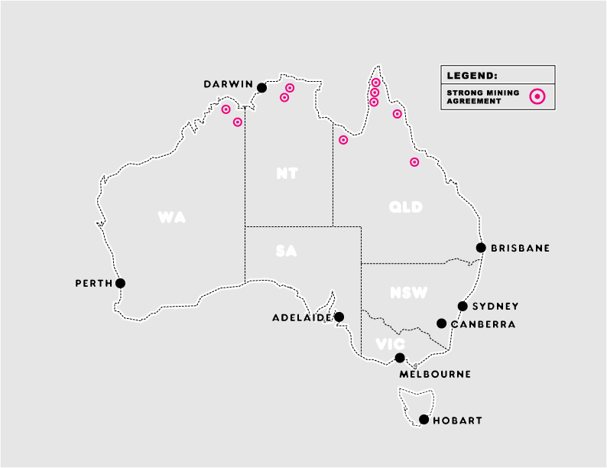
Issues here are quite similar to the Pre-Permitting phase.
In the case of a prospective expansion or timeline extension, environmental, cultural, and social impacts must be assessed – including on a cumulative basis, along with agreements for mitigation and compensation. The parties may wish to extend or revisit shared benefit agreements.
As in the Pre-Permitting phase, it is important for communities to receive information from the company about the possibilities and what information is still uncertain or needed to better understand the possibilities, in order to reach an informed decision about whether to consent to these changes. Earlier agreements may have outlined processes for navigating the particular scenario at hand; if not, it may be helpful to revisit many of the discussions from the Pre-Permitting phase, including:
- What are the possible paths forward (e.g., expansion, closure)?
- What is known about options relating to these possibilities (e.g., feasibility considerations, timeline, new opportunities, etc.)? Is more information needed to have the full picture?
- How will likely impacts – including cumulative impacts – be assessed (e.g., through a formal Environmental, Social and Health Impact Assessment)? Once impacts are understood, what mitigation or compensation will take place?
- What issues or processes does the community want to be informed about and/or weigh in on?
- How can any specialized, technical information be provided in an accessible manner (e.g., in relevant languages, and/or for community members who may not have legal or engineering backgrounds)? Is external expertise needed? How are experts or consultants to be selected, and paid for?
- Once information is received from the company, what processes need to take place within the community to support inclusive deliberation and decision making? What kind of timeline will allow for the community to digest information in order to identify important questions, seek advice where needed, and support eventual decision-making?
- Are adjustments needed to existing agreements regarding impacts/mitigation/compensation, shared benefits, or ongoing communication and decision-making protocols?
- If new partners are being considered, what is their track record? What will the current company do to ensure a smooth transition for the community, including transfer of commitments?
Company staff may transition in these periods, and care should be taken to ensure that their knowledge does not depart with them.
The result of these discussions should likely be a new set of agreements – either in addendum to or replacing prior agreements – encompassing new mitigation/compensation commitments, shared benefit expectations, and adjustments to protocols for communications and decision-making.
As in the Pre-Permitting phase, companies can earn or lose trust depending on whether relevant information is shared in a timely fashion, with the right people, and whether rights-holders have the opportunity to inform and prioritize discussions about design, mitigation, and compensation – so that communities can ultimately make an informed decision about the future.
Company staff may transition in these periods, and care should be taken to ensure that their knowledge does not depart with them. Communities find it very frustrating when ‘companies’ forget information that has been shared with them, or promises they have made.
While being honest about any uncertainty, it is important to give communities early opportunities to weigh in on considerations about major changes to a project. Expansions or extensions bring additional social, environmental, and cultural impacts, including cumulative impacts, and the community must be able to advise on the relative priority, acceptable mitigation measures, and appropriate compensation associated with these. Communities may have ideas for how to maximize potential opportunities associated with these changes, and should have the opportunity to contribute these before design proceeds too far. Nearly all of the guidance outlined in the Pre-Permitting phase again applies here.


